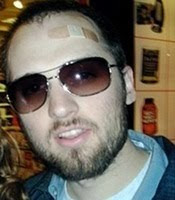"You don't make up for your sins in church. You do it in the streets."
Before Martin Scorsese, Robert DeNiro, and Harvey Keitel achieved legendary status, the three young men collaborated on the low-budget crime drama Mean Streets in 1973. As a smaller, independent film, it lacks the polish of something like Coppola's The Godfather (1972). Too much polishing here would obscure rather than illuminate Scorsese's subject. Most scenes revolve around petty, unglamorous criminal activity: low-level scams, debt collection, shakedowns, vandalism, drunken brawls, and senseless shootings. In short, these crimes are disorganized. The title uses the word 'Mean' not just in its ordinary sense, to suggest anger and cruelty, but the word unearths its more traditional associations: the low, dirty, small, and ugly aspects of life. The people near the bottom of the barrel prey on the few people unfortunate enough to be below them. Meticulous craftsmanship infuses every sight and sound with authenticity. Handheld cameras bring the audience into the barrooms, the bathrooms, the bedrooms; the back-rows, the backseats, and the back-alleys, to breathe the same air as its characters. Scorsese's conflicted attitude towards his 1970s Hells Kitchen setting (genuine affection along with genuine loathing) emerges through this intimate story. Protagonist Charlie (Keitel) stands in for the filmmaker. Burdened under Catholic guilt, he attempts to make a better life for himself, but only while fixing the tragic flaws of his friends at the same time. His longtime companion, the violent Johnny Boy (DeNiro), acts on impulse without any greater plan, dragging everyone else back down to his level. The character fails to find the proper equilibrium between the loyalties to religion, community, and self, but with any luck Scorsese himself may have achieved some balance, through his art.



No comments:
Post a Comment